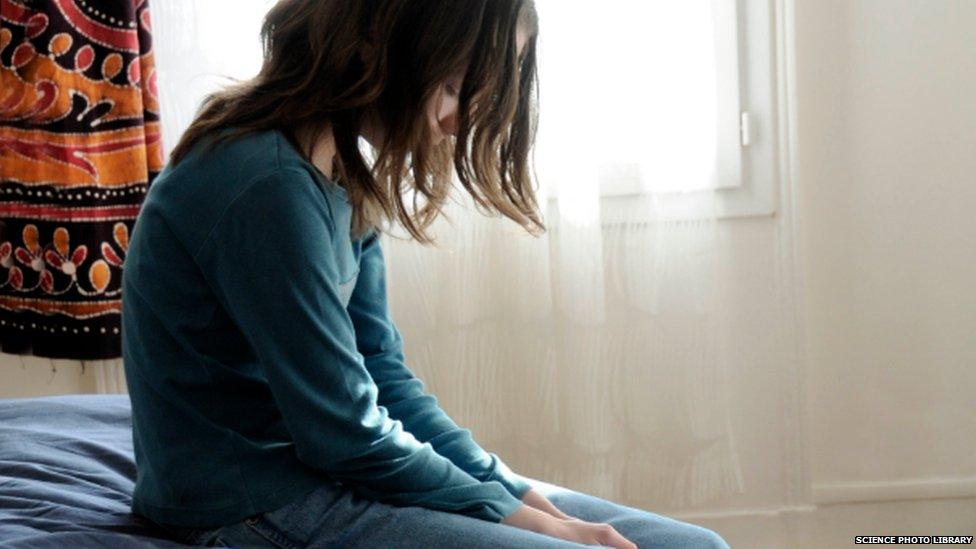Mental health: Rise in NI children seeking help during pandemic
- Published
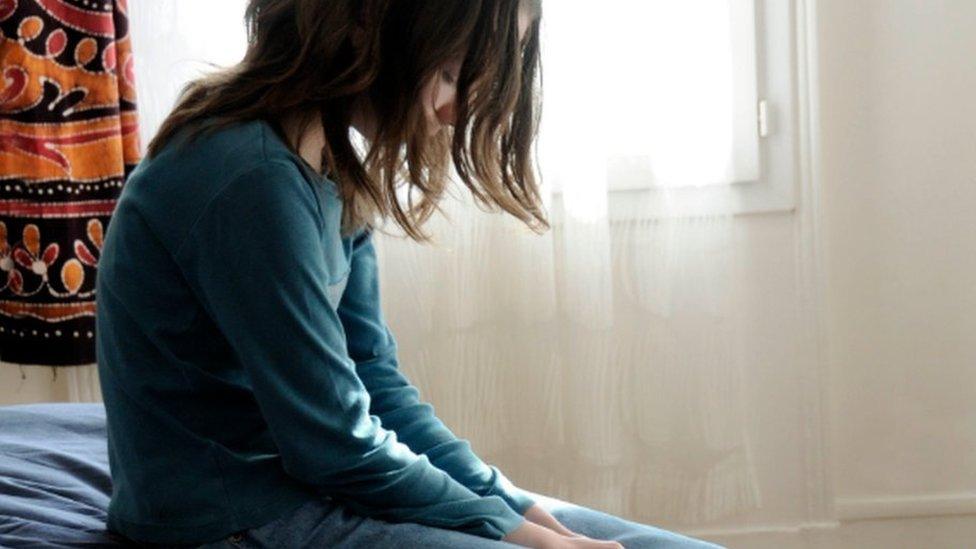
There has been a significant rise in young people in mental health crisis seeking help at hospital during the coronavirus pandemic.
Referrals to Child and Adolescent Mental Health Services (CAMHS) from hospital emergency departments rose by 24% from 2019-20 to 2020-21.
That is according to Northern Ireland's commissioner for children and young people, Koulla Yiasouma.
The figures come from data obtained by the commissioner from health bodies.
There has also been a sharp rise in children experiencing severe mental health problems in England.
BBC News NI also previously revealed that the nine-week CAMHS target for seeing a patient after a referral had been breached hundreds of times.
In 2018, Ms Yiasouma highlighted that many children struggled to get appropriate mental health support in a report called Still Waiting.
In a progress report published on Monday, Ms Yiasouma said she was "disappointed" that many recommendations from that report had not yet been implemented.
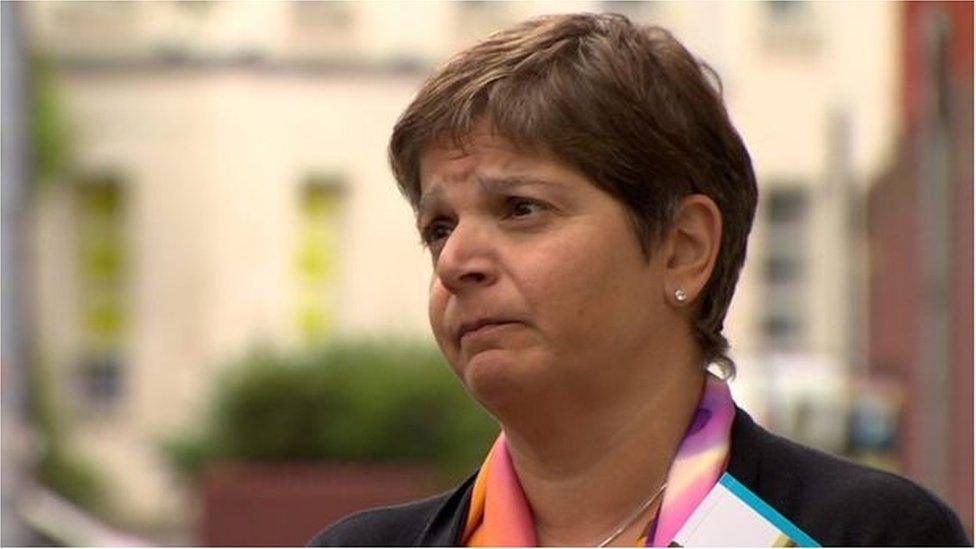
Koulla Yiasouma says many recommendations from a 2018 report have not been implemented
"The most significant public health issue caused by the pandemic, aside from the physical health risk from the Covid-19 virus, has been on population emotional wellbeing and mental health," Ms Yiasouma said.
"The evidence is now clear that children and young people have been disproportionately impacted.
"The limited statistics that are available on service activity paint a concerning picture."
Ms Yiasouma added: "CAMHS statistics are showing an increase in referrals to CAMHS from emergency departments (ED) for young people presenting during a mental health crisis.
"Between 2019-20 and 2020-21 referrals from ED have increased by 24% from 765 to 949."
There has also been a rise in the number of children who have "acute, complex and enduring mental health and emotional needs" waiting for help, according to the commissioner.
'Alarming increase'
In November 2021, 451 children with those needs were waiting more than nine weeks for their first appointment with appropriate services - a rise from March 2021 when the figure was 167.
Additionally in 2020-21, more than 1,800 children and young people "disengaged" from CAMHS before their treatment or intervention was complete.
There were also significant rises in the number of children waiting to access child psychology and children's learning disability services.
The commissioner said children with a learning disability or children with co-occurring mental health and alcohol and drug problems and their families "experienced the greatest barriers to access to emotional wellbeing and mental health support".
In a joint statement with the commissioner, the mental health champion for Northern Ireland Prof Siobhan O'Neill said young people in Northern Ireland were already 25% more likely to have depression and anxiety than those elsewhere in the UK before the pandemic.
"Research shows that their mental health has been more heavily impacted by the pandemic and the restrictions than any other age group," Prof O'Neil said.
"Service providers are also reporting an alarming increase in the numbers of children and young people who are seeking mental health interventions, and more young people presenting with very severe symptoms.
"Very high numbers of our children and young people are suffering right now and are unable to access interventions and support.
"The improvements to mental health services for this group are therefore extremely urgent."
Teachers' concerns
Ms Yiasouma and Prof O'Neill called for improvements to mental health services and support to be made an urgent priority.
There have been a range of reports that have highlighted the negative affects of the pandemic and restrictions on children and young people.
During the pandemic, children and young people experienced two prolonged spells out of school and other social activities - including sport - have been prohibited or restricted.
Some headteachers have also expressed concerns about an increase in pupils with mental health problems.
Health Minister Robin Swann also previously warned that referrals to mental health services were likely to rise significantly due to "the Covid-19 pandemic and restrictions to everyday life".
But he said an extra £1.2bn was needed to fully implement recommendations in a new 10-year mental health strategy.
Related topics
- Published4 February 2022
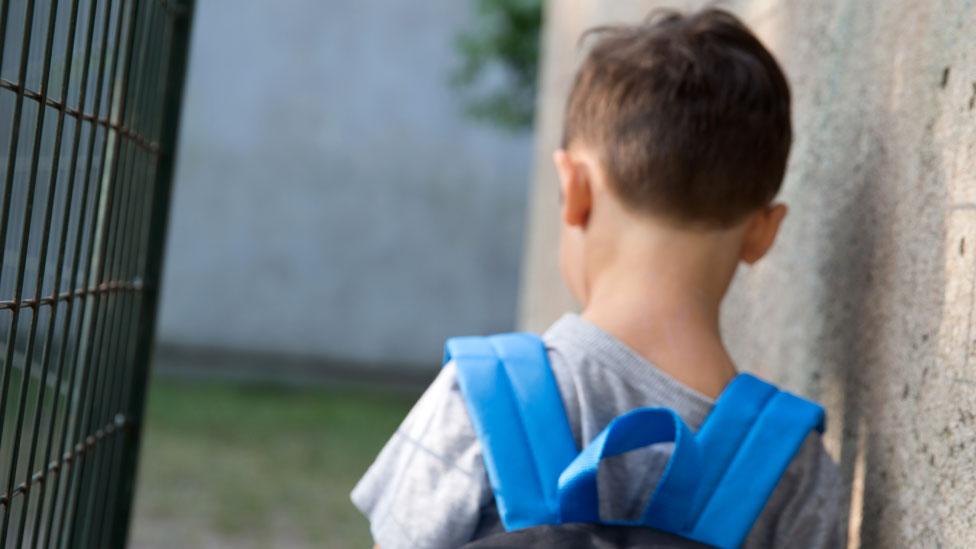
- Published29 April 2021
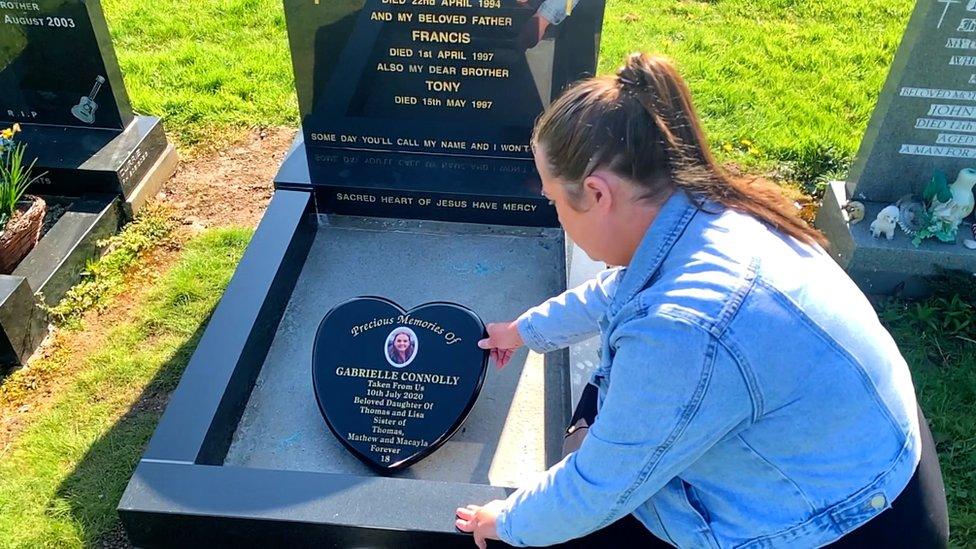
- Published27 September 2018
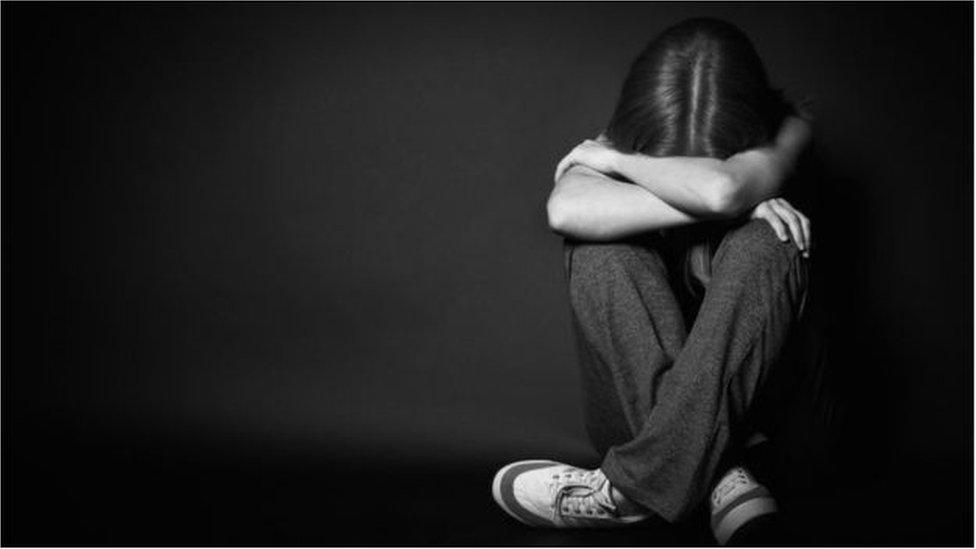
- Published19 October 2020
